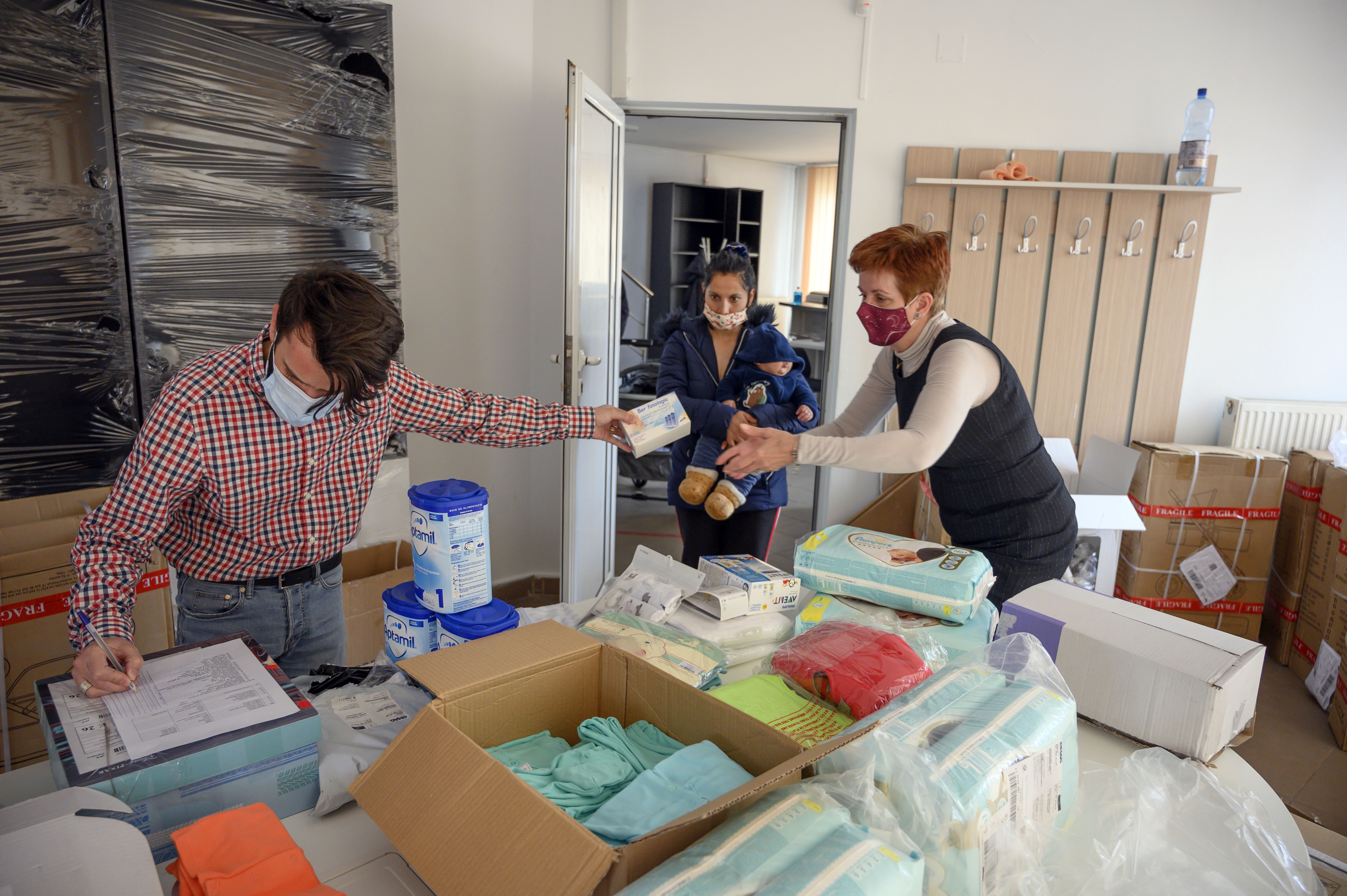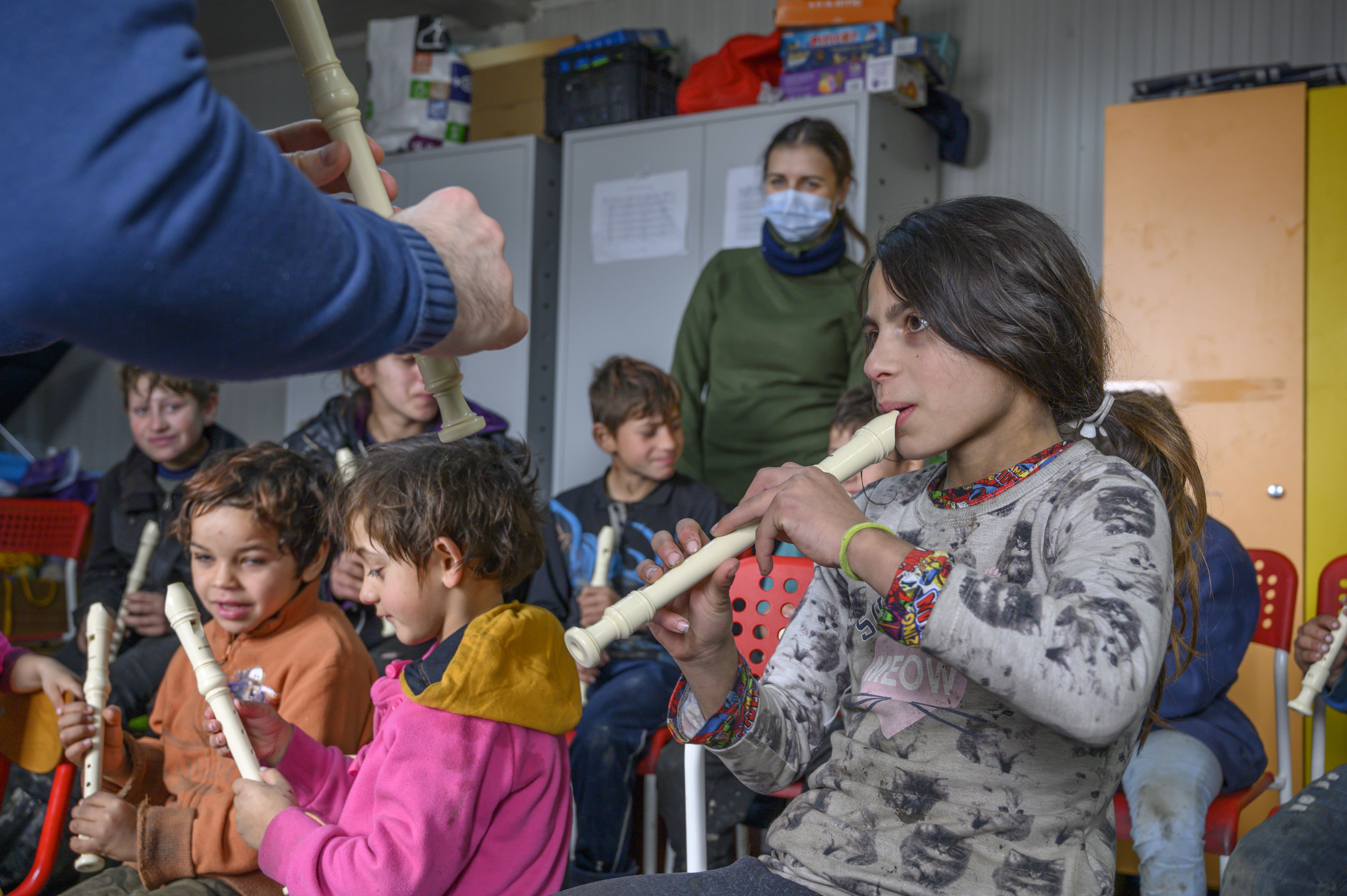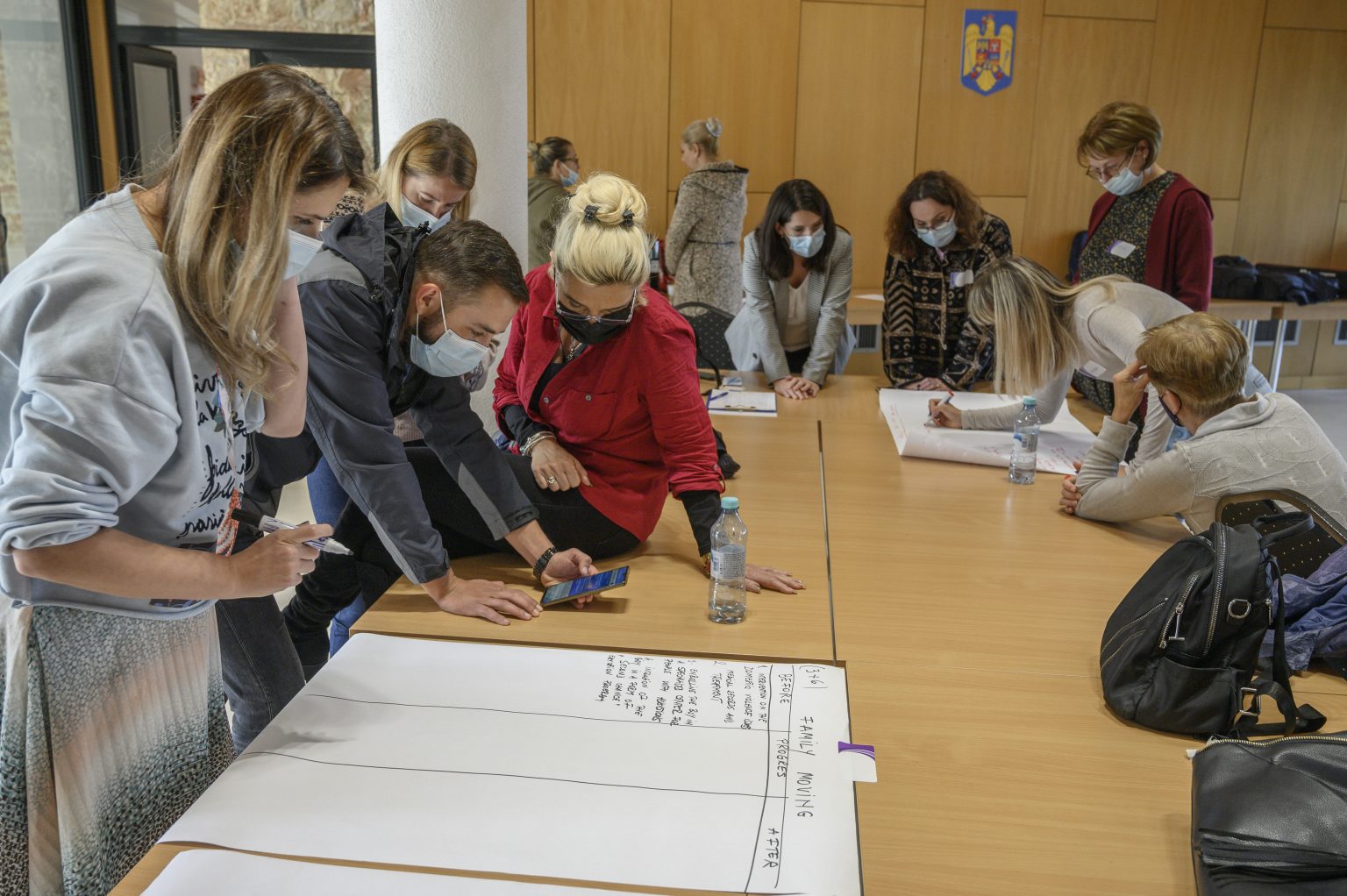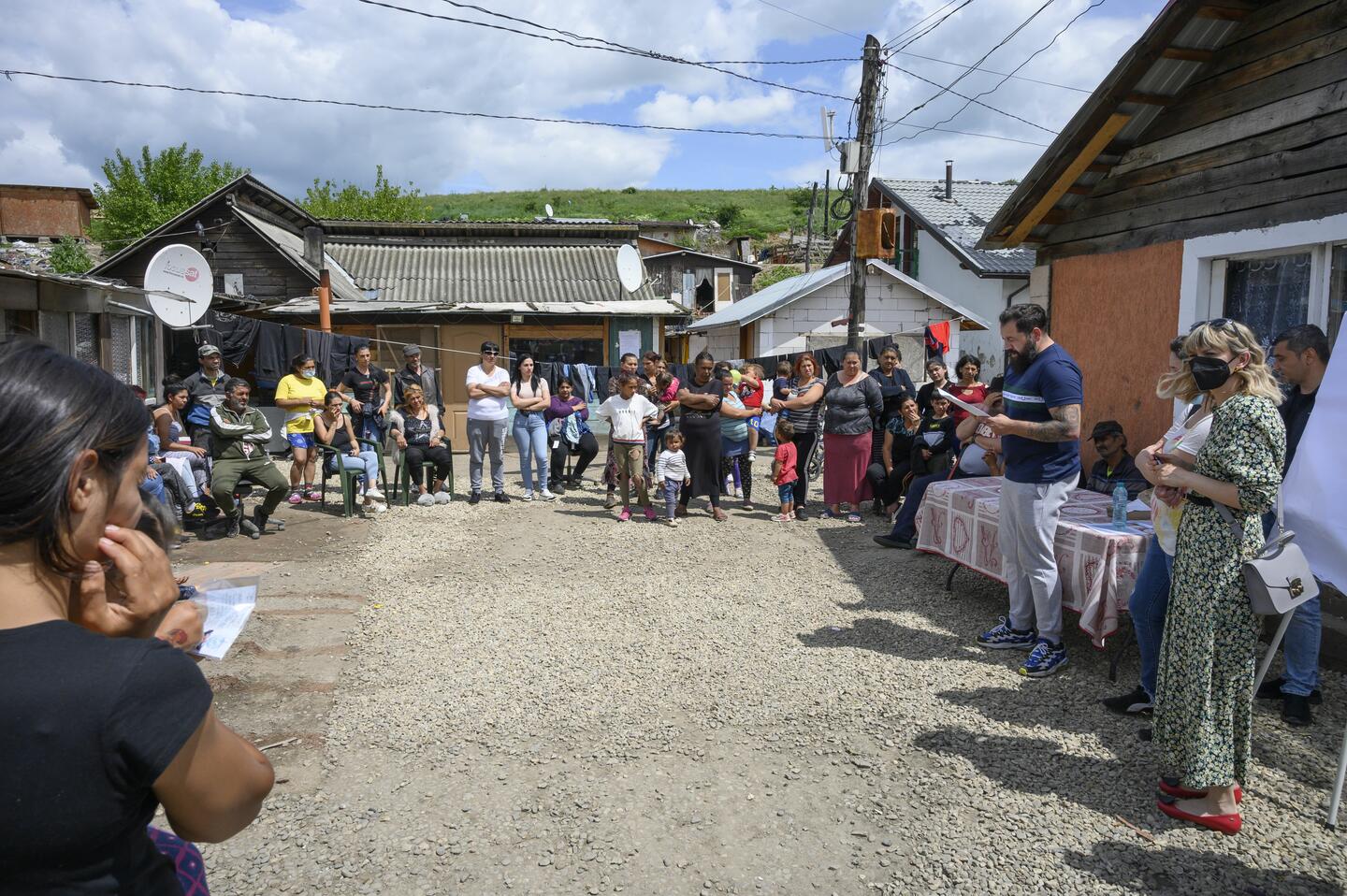In 2010, 270 families were evicted from their city-allocated homes in the city of Cluj-Napoca, the second-most populous city in Romania. These families, predominantly Roma, are part of one of the most discriminated ethnic minorities in Europe. They were relocated to a rubbish dump, called Pata Rât, which has been described as “one of the most astonishing manifestations of spatial injustice,” A clear path out was needed to give inhabitants hope. And that was the main goal of the projects Pata-Cluj and Pata 2.0, funded by the EEA and Norway Grants.
What are these projects about?
Both projects aim to help inhabitants of Pata Rât create a future for themselves, and counter the segregation and prejudice resulting from living on the outskirts of the city in poverty. The Pata-Cluj project provided social housing, as well as child protection services and vocational counselling, among others. The project transformed the traditional institutional top-down process of allocating social housing, into a process in which the needs and perspectives of the community are embedded into the system.

In this first wave of projects, 142 people were relocated to social housing within the city in 2017. This included 68 school-aged children, who from then on, could walk from their homes to their classrooms. Accessible schooling makes an important difference, according to Bogdan Stanicu, Communications Manager for the Cluj Metropolitan Area.
“The housing project focuses on families so that children get the best chance they can. The city hall sends public buses to Pata and the schools offer hot meals, but walking to school with other friends and classmates from a proper home is key to integration.” - Bogdan Stanicu.
Alex Fechete, a previous inhabitant of Pata Rât and one of the first inhabitants to be relocated during Pata-Cluj, has become a team member of the initiative. He helps others through the process of applying for and moving into social housing, actively giving back to the movement that first helped him and his family.
“Housing is the base of everything. As I got back to the city, everything came back to me. Getting out of those conditions means having a true chance at being part of society.” - Alex Fechete.
In 2021, we spoke with Alex about his experiences, you can find his story in the article: “Bringing hope to Pata Rât”.
From Pata to London — Alexandra’s success story
Another success story from the project is that of Alexandra Greta, who lived in Pata Rât for four years.
Describing her family’s eviction from their home in the city of Cluj to the marginalised area around the trash dump, she reminisces:
“It was December 20 before Christmas, it was snowing outside and cold. Before Pata, we had a cosy home on Coastei street in the centre of Cluj. The people from the town hall came one morning at 5 am and said that they had to demolish everything and that we had to go.” - Alexandra Greta.
For youth living on the periphery, there was a continuous roadblock. She explained how that is the point when they are likely to get involved into issues marginalised societies face, such as drugs and prostitution.

Thankfully, Alexandra’s relocation out of Pata Rât not only gave her a proper home, it also opened doors to a new life full of opportunities. In 2016, she moved to an allocated flat with her family, from where she was able to finish her high school education. She then applied to the economics programme at Canterbury Christ Church University, where she thrived. Today, Alexandra speaks fluent English, has a 7-year plan for opening her own business and feels more peace, happiness, hope and optimism than ever.
Pata-Cluj paved the way for Pata 2.0
Such success stories from Pata-Cluj were what enabled the launch of Pata 2.0. While 41 families applied for social housing during the first project, a whopping 124 families did so during the second one!
“We believe this is a great improvement we have achieved since 2013, when the first project began. It’s a complex process of building trust throughout the deprived community” - Bogdan Stanicu
While 1500 inhabitants are still in Pata Rât, he affirms that the only future for the settlement is to become history. Monica Gräff, the project's manager since December 2019, agrees when considering their most important learning.
“Pata 2.0 has taught us about the importance of building trust and investing in the relationship with the community. The project set-up allowed us to actively and equally involve the members of the community in all stages of the project, to consult them on upcoming steps and thus create a sense of ownership of the project.” - Monica Gräff.
What now?
The team of Pata 2.0 is working hard to acquire more homes before the end of the project. In the meantime, Alex continues to tirelessly assist children that are still in the encampment with buses, bathing and clothing, so that they face less discrimination when going to school. Otherwise, they walk in as outcasts and are shunned from the start.
A little effort comes a long way, thanks to people like Alex, Bogdan & Monica, who dedicate their energy to the cause. All sides hope that the project will be extended after the second wave closes in August 2023. As we saw through Alex’s & Alexandra’s stories, being relocated to social housing means having the chance to create a new life for the Roma community of Pata Rât.

Curious to know more about what we do for Roma inclusion?
Improving the situation of Roma across Europe is a priority of the EEA and Norway Grants. In total, an indicative minimum of € 50 million is allocated to Roma inclusion through programmes in the sectors of health, local development, children and youth at risk, justice and home affairs, culture, research, and civil society. Special focus is placed on countries with large Roma populations – Bulgaria, the Czech Republic, Greece, Romania and Slovakia.
Find out more about the EEA and Norway Grants’ support to Roma inclusion and empowerment
More information on the Active Citizens Fund
